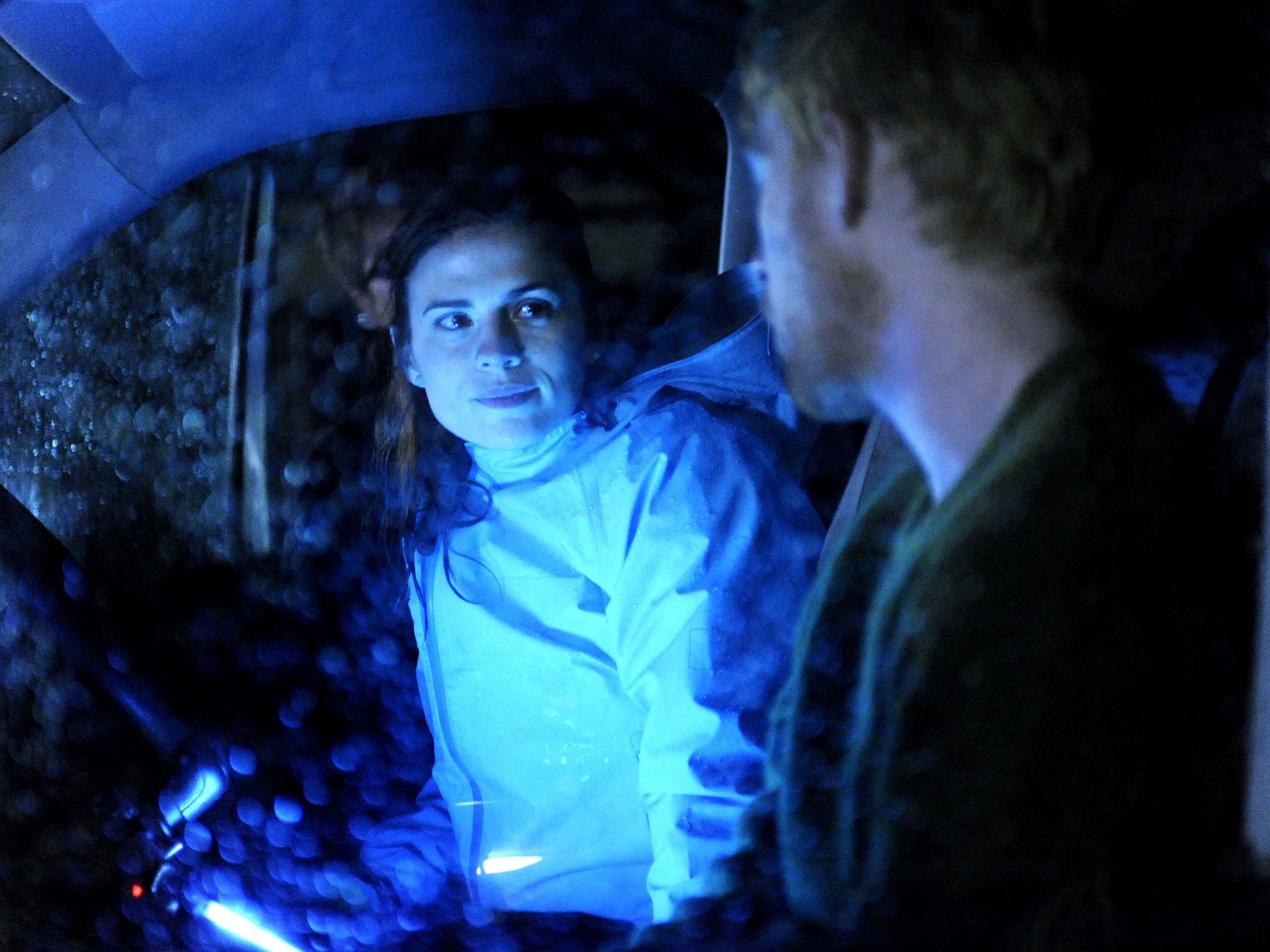TV review: Black Mirror - Tweet dreams are made of this?
Charlie Brooker's smart sci-fi drama wasn't quite the social-media satire it hoped to be

Your support helps us to tell the story
From reproductive rights to climate change to Big Tech, The Independent is on the ground when the story is developing. Whether it's investigating the financials of Elon Musk's pro-Trump PAC or producing our latest documentary, 'The A Word', which shines a light on the American women fighting for reproductive rights, we know how important it is to parse out the facts from the messaging.
At such a critical moment in US history, we need reporters on the ground. Your donation allows us to keep sending journalists to speak to both sides of the story.
The Independent is trusted by Americans across the entire political spectrum. And unlike many other quality news outlets, we choose not to lock Americans out of our reporting and analysis with paywalls. We believe quality journalism should be available to everyone, paid for by those who can afford it.
Your support makes all the difference.You are what you tweet. That was the unsettling contention up for debate in "Be Right Back", the first episode of Black Mirror, which returned for a second series last Monday.
It began with a succinct illustration of a ménage à trois that will be familiar to many: girl loves boy, boy loves smartphone. Or, to be precise, the boy in this case, Ash (Domhnall Gleeson), could not tear himself away from his phone's access to online social networks and what academics probably call the opportunity for self-mediation. The result was a distracted twitch of a man. Ash was not much cop as a boyfriend to Martha (Hayley Atwell) and even less cop behind the wheel: he soon updated his status to "dead" by wiping himself out in a hire van the day after the couple moved to the country.
At which point, you thought, Martha might well have shed a tear and picked up a good book. Instead, her slightly implausible grief drove her to accept a recommendation from a friend to sign up for a software service – stay with me, people – that creates a sort of cyber version of the deceased by scanning their social-media comments. Then all the private emails and then the photos, until Martha was standing before a walking, talking doll of her dead partner.
Black Mirror presents itself as a Tales of the Unexpected for the 21st century, and Charlie Brooker's script made light work of this techie upgrade of Frankenstein. In a neat reversal, Martha's first spoken contact with the disembodied entity purporting to be her late boyfriend was via her mobile phone. Also moving was the scene in which she coached this voice from beyond in her partner's quirks, gabbling fondly into her hands-free kit as she wandered across open countryside. The air of quiet uncanniness was served handsomely by the airy, faded photography and the production design, which presented us with a vision of a seductive technological near-future.
The drama's denouement was something of a puzzle, then. Martha accepts the offer to upgrade Ash to a lifelike robot, which turns out to be a polite, obedient partner who's never too tired for sex and who utterly spooks his "administrator" Martha – "Ash" doesn't breathe, eat or close his eyes. Martha, to her horror, wonders what resemblance, if any, this figure bears to her dead partner. The audience, meanwhile, might very well wonder why Ash has become just another sci-fi stock robot. Even he says to Martha at one point: "There's tons of invective in the archive. I could throw some of that at you." So why doesn't he? What began as a ghostly satire on social media seemed, by its close, to be spooked by its own sinister possibilities.
There were some rather less convincing puppets bumbling about in Penguins – Spy in the Huddle (BBC1, Monday **). That galumphing title referred to the conceit of this daft natural-history yarn: cameras inserted into some pretty ropey looking robot birds and then set down among flocks of bemused emperors, rockhoppers and Humboldts.
The penguin, of course, is challenged only by the meerkat as the most typecast animal on the small screen, and Spy in the Huddle did nothing to challenge that. Each shot – dodging sea lions, incubating eggs, floundering in the surf – screamed cute and plucky. And there's no doubting that the sight of half a dozen rockhoppers charging along a surf-lashed rock face raised a grin. But why did we need the "penguin-cams"? I can't recall more than about a dozen short sequences of their footage, and accompanying some of these were passages presumably shot at close range by the more traditional camera operator. The joke, such as it was, seemed to be at the expense of the uniform anonymity of the species. So it was pleasing to see one real live bird break rank and give a penguin-cam a good kicking.
By coincidence, I suppose, BBC4 broadcast a neat footnote to the current crisis in the meat industry. In Britain on Film (BBC4, Monday ***), it's been rerunning the Rank Organisation's Look at Life series from the Sixties. Last week's episode examined the industrialisation of agriculture, and in one sequence showed a line of beef cattle at the trough. "As precise and scientific as a production line at Coventry," honked the narration. "As standards of living go up around the world, there just isn't enough beef to go round …"
Join our commenting forum
Join thought-provoking conversations, follow other Independent readers and see their replies
0Comments